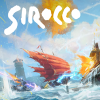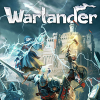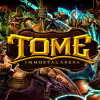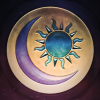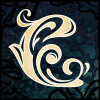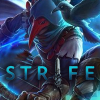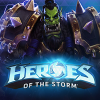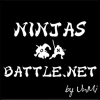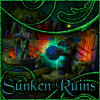A genre-hybrid game which features extensive 20v20 battles in a fully 3D destructible environment.
The available characters fall into a few archetypes (warrior, cleric, wizard). Out-of-game, players create and customise several characters, deciding the appearance and abilities of each. In-game, players start with a low-power character, and by earning points they can swap to one of their stronger characters later.
Each team is divided into 5 squads of 4 members each, and the squads are given roles to perform within the team (2 for invading, 1 for capturing towers, 2 for defending the castle). Players generate resources for completing activities related to their squad's role. These include building ballistae, capturing the towers on each lane, or destroying castle walls and defences.
The game is over when one team breaks into the enemy's keep (an indoors environment) and defeats the core.
As well 20v20, there is a free-for-all mode with 5 teams!
